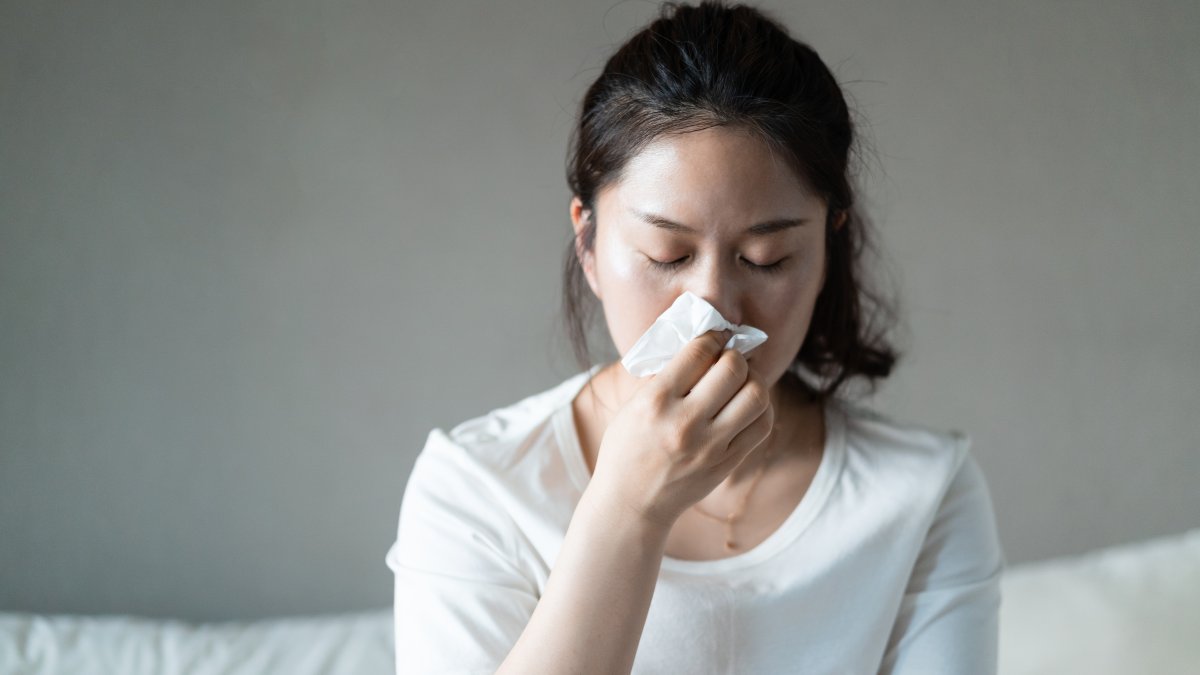
Seasonal allergies are rising as spring weather returns to the Chicago area, but as the coronavirus pandemic continues to grip both the city and Illinois, how can you tell if your symptoms are pollen in the air, a cold or something more?
With high levels of tree pollen wafting through the air and COVID variants lingering around, it can be difficult to identify the reason behind the runny nose and fatigue.
Before self-diagnosing, health officials have said the best way to identify the ailment is through testing, especially given some symptoms overlap between the coronavirus and seasonal allergies.
"Even if it's a sore throat, no matter what it is," Dr. Allison Arwady, commissioner of the Chicago Department of Public Health, said in a Facebook live last month. "I've told my own staff this, it's what I do myself... if you are sick, even a little bit sick, stay home. More true than ever right now because sick, even a little bit sick, until proven otherwise with a test - that's COVID. That's how we treat it, that's how you should treat it."
So how can you tell a difference between the two?
Here’s a list of COVID and allergy symptoms as outlined by the CDC:
COVID Symptoms
- Fever or chills
- Cough
- Shortness of breath or difficulty breathing
- Fatigue
- Muscle or body aches
- Headache
- New loss of taste or smell (although doctors have noted that the latest COVID variants typically will not cause loss of taste or smell)
- Sore throat
- Congestion or runny nose
- Nausea or vomiting
- Diarrhea
Dr. Katherine Poehling, an infectious disease specialist and member of the Advisory Committee on Immunization Practices, told NBC News in January that a cough, congestion, runny nose and fatigue appear to be prominent symptoms with the omicron variant.
Local
Even those who receive the coronavirus vaccine can also still contract the virus and may experience symptoms. Most vaccinated people, though, either have no symptoms or exhibit very mild symptoms, according to health officials, and the virus rarely results in hospitalization or death for those individuals.
Feeling out of the loop? We'll catch you up on the Chicago news you need to know. Sign up for the weekly Chicago Catch-Up newsletter here.
The CDC advises seeking medical attention if a person is experiencing trouble breathing, persistent pain or pressure in the chest, new confusion and inability to wake or stay awake, as well as pale, gray or blue-colored skin, lips or nail beds.
COVID has also been seen producing additional complications, the CDC noted, including blood clots in the veins and arteries of the lungs, heart, legs and brain, as well as Multisystem Inflammatory Syndrome in both children and adults.
Allergy Symptoms
- Symptoms from allergic rhinitis include:
- sneezing
- runny nose
- congestion
- Symptoms from allergic conjunctivitis include:
- red, watery, or itchy eyes
Loyola Medicine's Allergy Count is updated each weekday morning during allergy season by allergist Dr. Rachna Shah, according to the Twitter account.
According to Loyola Medicine, the levels as of Tuesday were reported to be:
Trees - high - most prevalent - Cottonwood
Grass - absent
Molds - low
Weeds - absent
Trees are in their peak season from March to May, while grass will be in its peak season from May to June, Loyola Medicine noted. Mold has its peak season in both spring and fall - whenever conditions are "damp."
Loyola Medicine ranks the counts from low to high risk, then "alert." When an allergen is marked as "alert," those sensitive are advised to stay indoors.